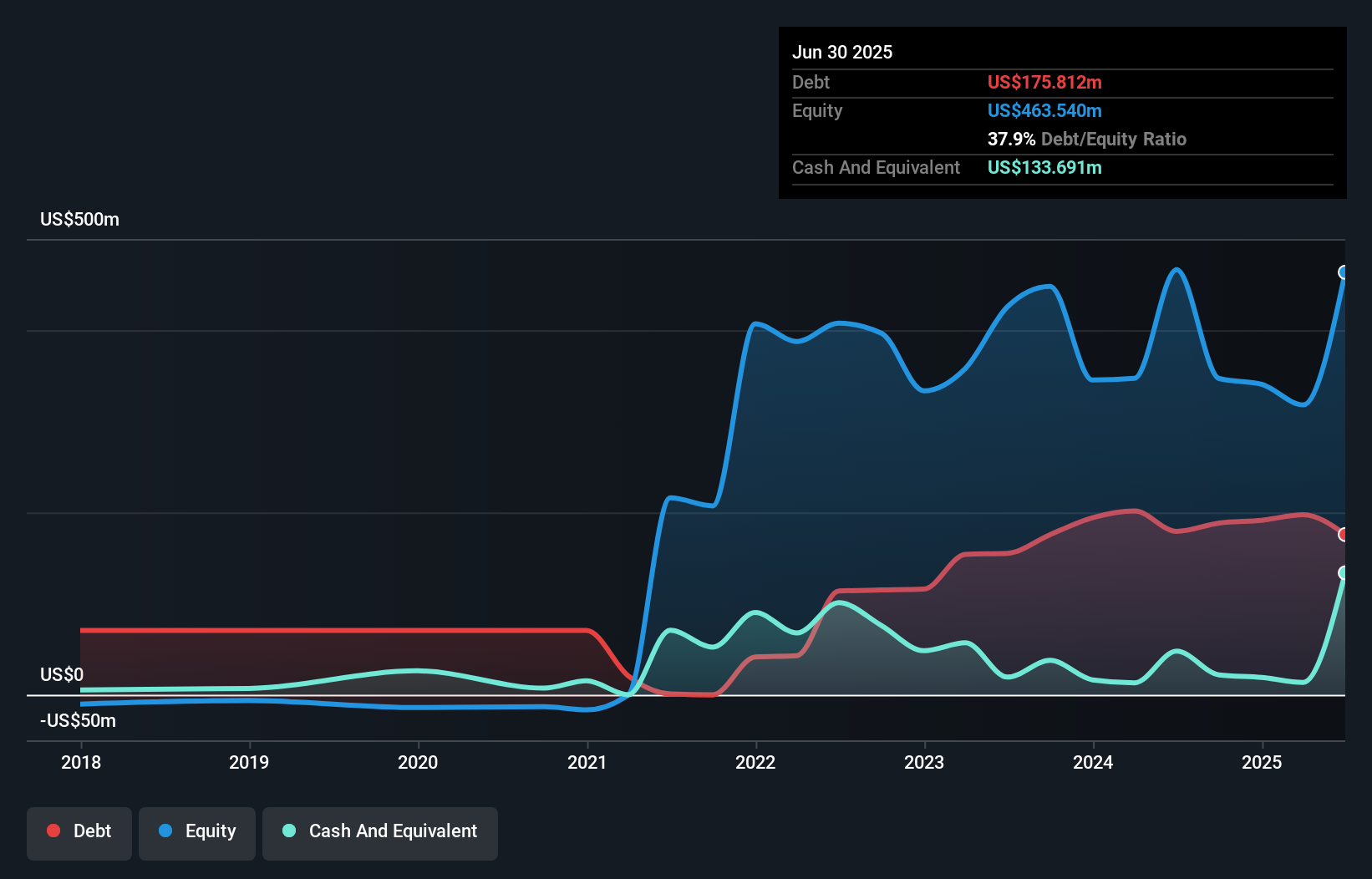Howard Marks put it nicely when he said that, rather than worrying about share price volatility, 'The possibility of permanent loss is the risk I worry about... and every practical investor I know worries about.' When we think about how risky a company is, we always like to look at its use of debt, since debt overload can lead to ruin. As with many other companies i-80 Gold Corp. (TSE:IAU) makes use of debt. But the real question is whether this debt is making the company risky.
When Is Debt Dangerous?
Generally speaking, debt only becomes a real problem when a company can't easily pay it off, either by raising capital or with its own cash flow. If things get really bad, the lenders can take control of the business. While that is not too common, we often do see indebted companies permanently diluting shareholders because lenders force them to raise capital at a distressed price. Of course, debt can be an important tool in businesses, particularly capital heavy businesses. The first thing to do when considering how much debt a business uses is to look at its cash and debt together.
How Much Debt Does i-80 Gold Carry?
The chart below, which you can click on for greater detail, shows that i-80 Gold had US$175.8m in debt in June 2025; about the same as the year before. However, because it has a cash reserve of US$133.7m, its net debt is less, at about US$42.1m.

How Strong Is i-80 Gold's Balance Sheet?
Zooming in on the latest balance sheet data, we can see that i-80 Gold had liabilities of US$120.5m due within 12 months and liabilities of US$198.8m due beyond that. Offsetting this, it had US$133.7m in cash and US$4.67m in receivables that were due within 12 months. So its liabilities outweigh the sum of its cash and (near-term) receivables by US$181.0m.
i-80 Gold has a market capitalization of US$801.0m, so it could very likely raise cash to ameliorate its balance sheet, if the need arose. But we definitely want to keep our eyes open to indications that its debt is bringing too much risk. There's no doubt that we learn most about debt from the balance sheet. But ultimately the future profitability of the business will decide if i-80 Gold can strengthen its balance sheet over time. So if you're focused on the future you can check out this free report showing analyst profit forecasts.
See our latest analysis for i-80 Gold
In the last year i-80 Gold wasn't profitable at an EBIT level, but managed to grow its revenue by 40%, to US$77m. Shareholders probably have their fingers crossed that it can grow its way to profits.
Caveat Emptor
Even though i-80 Gold managed to grow its top line quite deftly, the cold hard truth is that it is losing money on the EBIT line. Indeed, it lost US$76m at the EBIT level. Considering that alongside the liabilities mentioned above does not give us much confidence that company should be using so much debt. Quite frankly we think the balance sheet is far from match-fit, although it could be improved with time. Another cause for caution is that is bled US$69m in negative free cash flow over the last twelve months. So in short it's a really risky stock. The balance sheet is clearly the area to focus on when you are analysing debt. But ultimately, every company can contain risks that exist outside of the balance sheet. These risks can be hard to spot. Every company has them, and we've spotted 2 warning signs for i-80 Gold you should know about.
At the end of the day, it's often better to focus on companies that are free from net debt. You can access our special list of such companies (all with a track record of profit growth). It's free.
Valuation is complex, but we're here to simplify it.
Discover if i-80 Gold might be undervalued or overvalued with our detailed analysis, featuring fair value estimates, potential risks, dividends, insider trades, and its financial condition.
Access Free AnalysisHave feedback on this article? Concerned about the content? Get in touch with us directly. Alternatively, email editorial-team (at) simplywallst.com.
This article by Simply Wall St is general in nature. We provide commentary based on historical data and analyst forecasts only using an unbiased methodology and our articles are not intended to be financial advice. It does not constitute a recommendation to buy or sell any stock, and does not take account of your objectives, or your financial situation. We aim to bring you long-term focused analysis driven by fundamental data. Note that our analysis may not factor in the latest price-sensitive company announcements or qualitative material. Simply Wall St has no position in any stocks mentioned.
About TSX:IAU
i-80 Gold
A mining company, explores for, develops, and produces gold, silver, and polymetallic deposits in the United States.
High growth potential with adequate balance sheet.
Market Insights
Community Narratives




